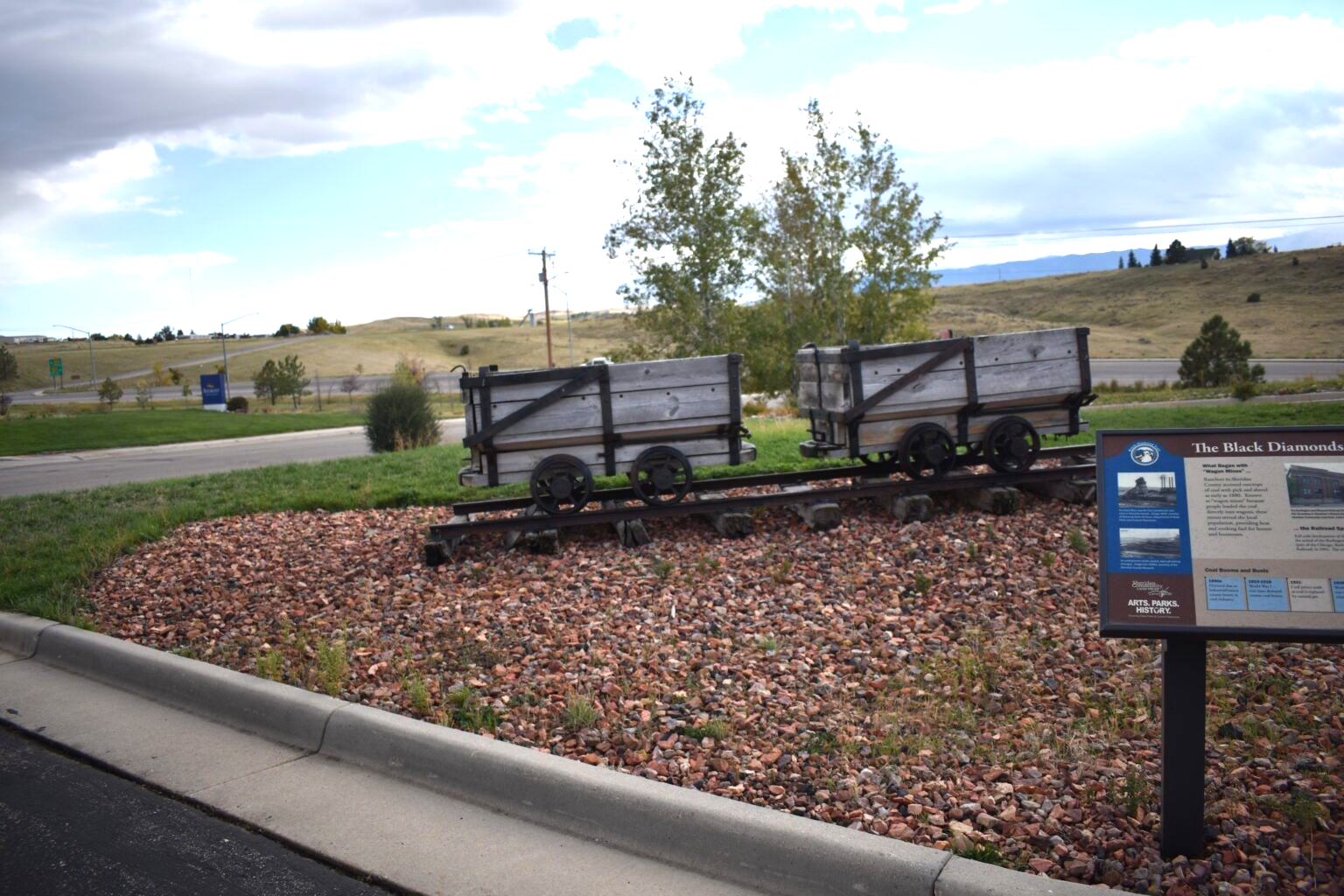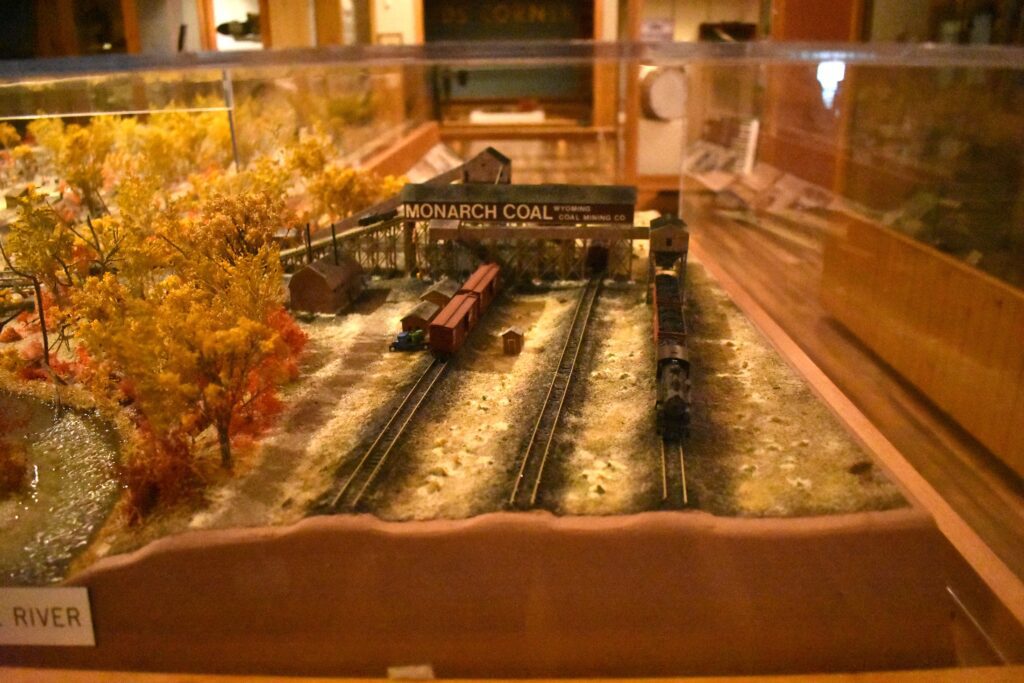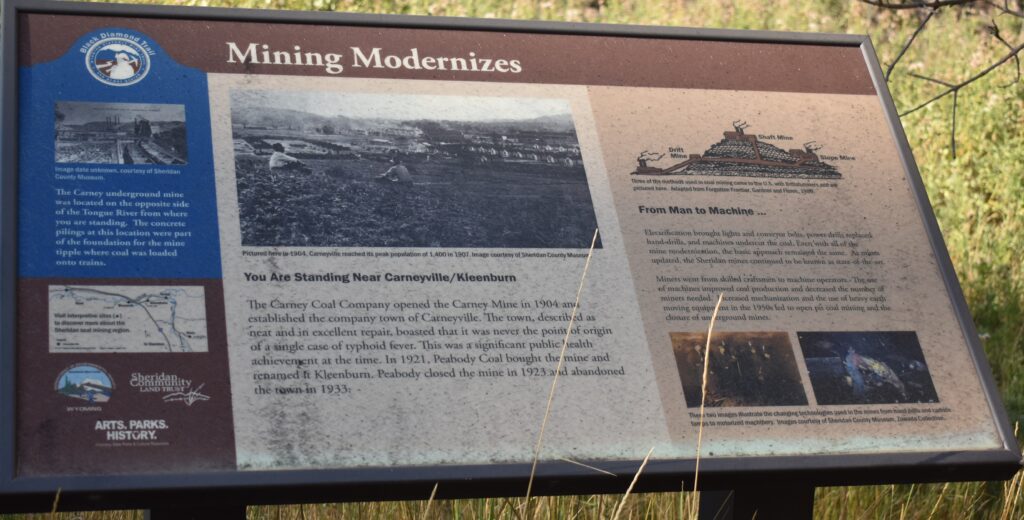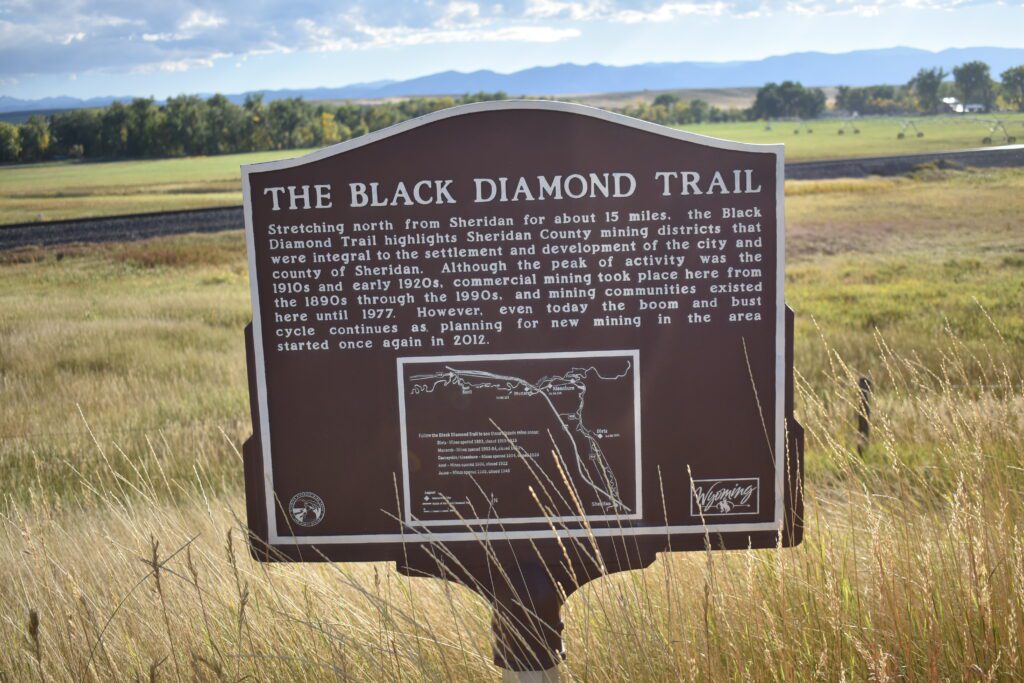News
History: The Carneyville Coal Miners’ Strike

Close to several coal mines, Sheridan was accustomed to strikes. One that was severe enough to call in the military to end the strike happened 105 years ago this month.
In November of 1919, there was a miner’s strike at the coal town of Carneyville, not far from Sheridan. A few years later, Carneyville was renamed Kleenburn, because the coal mined there ‘burned clean’. But, in 1919 the name was still Carneyville, and the strike was ended by the Wyoming military. Here is the story of the strike.
The Sheridan Enterprise, November 1, 1919 – All Miners Quit Posts in Strike at Local mines. City is to Ration Coal to the Needy During Strike Here. – The strike in the Sheridan coal field is 100-percent effective, according to Rees Davis, vice-president of the Wyoming state federation of labor, who is acting for James Morgan, district secretary, during his absence. All men ceased work at the close of the shift yesterday evening. Reports from the various mines show that the only men at work today are the men engaged in maintenance work.
Quiet prevails throughout the field. Hundreds of miners spent the first day of the strike in visiting Sheridan. Each interurban car that came into the city this forenoon was filled to capacity. Yesterday was payday at the mines and the miners were well supplied with money and the merchants did a thriving business. The local leaders will disregard the injunction order of the federal court and will base their action entirely upon orders received from International Headquarters in Indianapolis it was announced.
The Consumers Coal company has closed it mine in response to the strike order. The Consumers Coal company have three cars of coal on the track now which will be all that will be received during the strike so that the city will be wholly dependent upon coal from the wagon mines. Fallowing a conference between a committee, representing the Commercial club and the members of the city council, it was suggested to operators of the county mines that a central distributing agency be established in Sheridan in order to ensure an equitable distribution of all coal brought into the city. A meeting will be held this evening to work out the details of the plan.
The strike was a part of a nationwide strike of miners of bituminous coal, who wanted higher wages. Around 8000 Wyoming miners participated in the strike.
The strike in Carneyville lasted for nearly a month.
The Sheridan Enterprise, November 26, 1919 – Strike Is Canceled When Troops Enter Mining Camps Major Warren Dean Heads Detachments in Raid at Carneyville and many are Jailed – Emphasizing in determination to enforce the provisions of Federal Judge Anderson’s injunction prohibiting conspiracies to promote the coal strike, Major Warren Dean, military commander of Northern Wyoming, headed a military detachment into the coal fields of Sheridan county today and made whole sale arrests on the largest scale that has ever been attempted in any strike zone.
The action of Major Dean came as a surprise to the miners, despite his previous warnings, and created one of the biggest sensations that has occurred in the history of the coal camps in this locality. Fifty-two miners, in addition to ten others who were arrested by Sheriff Dolph Thomas yesterday and last night were taken into custody by troops at Carneyville his afternoon, after which military detachments hastened to Monarch, arriving there it 2:00 o’clock. At this camp, however the troops found the miners meeting at the union hall. A message was sent to Major Dean that the miners were voting on whether they would return to work. Major Dean waited until at 2:30 when word was sent that all miners had voted unanimously to return to work.
The troops then left for Sheridan. All miners placed under arrest at Carneyville are members of the foreign element, who are accused of having conspired to prevent the majority of the miners of the two camps from resuming work. They are being brought to Sheridan and, as the county jail is not large enough to accommodate this number, they probably will be confined in guardhouses at Fort Mackenzie. The arrests at Carneyville were made without the slightest resistance on the part of any miners.

A Display at the Museum at the Bighorns’ Former Location on 5th Street
Siren Calls Troops to Mobilize Here Sheridan awoke this morning with the screaming of the fire siren. summoning members of the Sheridan troop of the Wyoming National Guard to mobilize immediately at Fort Mackenzie. This signal had previously been agreed upon and was promptly understood. Local troops were hastily mobilizing and were rushed to Fort Mackenzie in trucks. At 10:30 o’clock special interurban trains streamed out of Sheridan for Carneyville, bearing one machine gun platoon, one automatic rifle platoon, one platoon of riflemen.
Major Dean and his complement of officers. Sheriff Thomas and four deputies and Deputy United States Marshal Edward Sevey. All troops were heavily armed. Additional troops were held in reserve at Fort Mackenzie for immediate call in case an emergency should demand their presence at the camp, while reserves in the city itself were notified to be in readiness to report to Fort Mackenzie. Immediately on the arrival of the interurban at Carneyville the troops descended from the car an instant later the order was given to fix bayonets. A few minutes later the soldiers were charging down the street at Carneyville toward the pool hall, which was surrounded and all minors m the building wore told to remain in the building, guards were thrown about the hall after which the soldiers were detailed to go to all go to all homes and order all men to report to the pool hall.
52 Are Arrested at Pool Hall – The soldiers complied with the orders in rapid fire order. Miners streamed down the middle of the streets from all parts of the camp. At the pool hall they were lined up and from a list of 72 names which had been put in Major Dean’s hands, 52 miners were arrested. The miners were divided into two groups. All were asked if they would return to work Friday morning Those who replied that they would not be molested. The 52 men who were under arrest were taken to interurban cars and placed under heavy guard……
The Sheridan Post, November 29, 1919 – More Regulars Have Arrived At Fort Mackenzie One Hundred and Fifty Doughboys Put in an Appearance — Captain Nix Commanding. – The garrison at Fort Mackenzie has increased last evening by the arrival of about 150 members of the Twenty-first United States infantry, Captain Nix reporting to Major Dean on the arrival of train No.42.
This company was sent out from Fort Wright, Washington, at the beginning of the strike and was sent from Cheyenne to Thermopolis at the time of the trouble there, and then ordered here to await further instructions, and went immediately to Fort Mackenzie. Major Dean last evening issued the order for the mobilization the local cavalry organization which has been under arms since Wednesday morning, and it is hoped that the normal conditions arrived at no may be maintained.

In a separate article in the same newspaper we have this:
Prisoners Released And Work Is Resumed All Of The 52 Men at The Fort Released. Mines Are All Working Production of Coal is Approaching Normal — Coal Strike Crisis Apparently Passed. Sheridan county’s insipid coal strike is apparently at an end. The men who were arrested by Sheriff Thomas and deputies, backed by a cordon of regular soldiers, have been released, the miners have gone back to work and the mines have been speeded up to a production that very closely approaches normal. At one time the situation was tense with stupendous possibilities. A squadron of soldiers with loaded guns and fixed bayonets flanked by machine and automatic rifles hemming in a mob of men of a dozen nationalities scared, not understanding the meaning of it all, has grim potentialities of tragedy. But fortunately all ended well.
Splendid judgment on the part of the men in command, with loyalty tact and self control on the part of the advisers of the miners, avoided clash when one reckless act might have precipitated a tragedy. The crisis now has safely passed. The men are back at work, parting from their late guards in a spirit of comraderie which builds large for better understanding in the future, the mines are running, and throughout the entire valley there is peace, if not contempt, and thankfulness that the great crisis is passed without violence and that no scars have been made that time will not heal. Acting upon the request of the officers of the Carneyville Union, and other Union leaders, Sheriff Dolph Thomas yesterday evening about five o’clock, turned loose all the prisoners which were taken in the raid on Carneyville.
These officers visited the jail during the afternoon and talked with the men who promised to be loyal to the union and later assured the sheriff that they would be personally responsible for the men allowed to go free, and see to it that they returned to work in the mines, and in the event of their refusal to obey the laws of their local and international union, they would be immediately suspended from membership, and the sheriff notified of their acts.
Among these foreigners are some of the most efficient miners in the whole district, and men whose absence from the mines means a curtailment of the output. Knowing this and not wishing to be unjust, Sheriff Thomas turned the prisoners loose after they had promised to return to work.

Over one hundred years ago this month, the town of Carneyville, Sheridan County Wyoming, had a miners strike which had to be ended by military force.


Meshelle Cooper
November 4, 2024 at 12:29 pm
Cynthia – thank you for a very informative and interesting article!
Another history lesson!